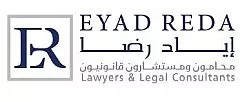- with readers working within the Metals & Mining industries
- within Energy and Natural Resources, Employment and HR and Technology topic(s)
The Anti-Concealment Law prohibits non-licensed foreigners from practicing economic activities in Saudi Arabia by any means, including allowing a foreigner to have unrestricted authority over the entity and/or using a bank account other than the company's account for economic activity transactions.
DISPUTE RESOLUTION
There are different means of dispute resolution in Saudi Arabia that generally consist of courts, specialized tribunals, and arbitration. As a general rule, disputes arising from any commercial transaction are subject to the Commercial Court jurisdiction. However, specific disputes such as the ones involving insurance, banking, or capital markets are subject to specialized judicial tribunals, In addition to the commercial court and the specialized judicial tribunals, arbitration and mediation are common methods of alternative dispute resolution in Saudi Arabia
General Court System
Supreme Court
The Supreme Court is the highest of the judiciary to receive a complaint against the court that rendered the contested decision and is not a party to the litigation class. Its primary role is to review "Hadd" cases and to review decisions in terms of proper application, interpretation, and interpretation of Islamic Shar'ia provisions. The Supreme Court does not assess facts or evaluate evidence in its trials.
Courts of Appeals
The Courts of Appeal shall hear judgments handed down by the courts of first instance, after hearing the statements of the adversaries, in accordance with the Shari'ah Procedure Law and Law of Criminal Procedure
Courts of First Instance
The rules of jurisdiction between the courts of first instance are adopted based on the type of case, i.e., the nature of the dispute, whether commercial, personal, urgent, etc..., regardless of the value of the case. Moreover, the relevant court specializes in the disputes that occur in its circuit.
Commercial Court
In 2020, the new Commercial Courts Law was enacted under Royal Decree No. M/93, dated 15/08/1441H (17 April 2020) and came into effect on 16 June, 2020. The law governs all disputes that fall within the commercial court's jurisdiction, such as business conflicts, commercial contracts, and any dispute that arises as a violation of the Saudi Companies Law, Bankruptcy Law, Intellectual Property Law, or any other business related laws.
Enforcement Courts
Enforcement Courts have jurisdiction over execution disputes regardless of their value. The courts are organized into specialized circuits, with one or more judges on each circuit. They also have the power of compulsory enforcement and supervision over execution disputes.
Enforcement Courts are specialized in enforcing the following:
Judgments, decisions and orders issued by the courts.
The arbitrators' provisions attached to the execution order according to the Arbitration Law.
Reconciliation records issued by the authorities authorized to do so.
Negotiable instrument
Notarized contracts and documents
Judgments, court judgment, decisions of arbitrators, and authenticated instruments in a foreign country
Ordinary instruments whose content is fully or partially recognized.
Contracts and other instruments that have executive titles under the Law.
Kindly note that there are over 31 specialized committees established to adjudicate specific disputes, such as: Banking Disputes Committee, The Committee for the Resolution of Securities Disputes and more specialized committees.
Small Debtors' Protective Settlement
The Labor Courts, established pursuant to Royal Decree No. 20712, dated 29 Rabi' Al Thani, 1439H (16 January 2018), took effect in the Kingdom on 20 Safar, 1440H (29 October 2018) to hear Saudi and Foreign workers' disputes, fostering a safe and supportive work environment in alignment with Vision 2030. Labor Courts are branches of the Courts of First Instance, specialized in dealing with various labor disputes and spread throughout Saudi Arabia's provinces. According to the Ministry of Justice, there are 7 working courts, 27 labor services, and nine appeal chambers in six appeal courts to review judgments handed down by the first-instance labor courts.
Alternative Dispute Resolution
Arbitration and the Saudi Center for Commercial Arbitration:
The use of Arbitration is developing in Saudi Arabia. In 1993, Saudi Arabia ratified the 1958 Convention for the Recognition and Enforcement of Foreign Arbitral Awards (the "New York Convention/Convention") under Royal Decree No. (M/11), dated 16/07/1414H (30 December, 1993). The New York Convention is the convention for the recognition and enforcement of foreign arbitral awards, done in New York, 10 June, 1958.
Arbitration is a form of alternative dispute resolution. Rather than filing a lawsuit, the parties can choose arbitration to opt for a private dispute resolution procedure instead of taking it to court. The Saudi Center for Commercial Arbitration ("SCCA") Rules are built on the internationally recognized UNCITRAL Arbitration Rules to provide parties with a straightforward, concise, and efficient dispute resolution procedure. Moreover, in conformance with the needs of modern international trade practices, SCCA Rules adopt the best practices of leading arbitral institutions, including AAA-ICDR.
The SCCA Rules have been drafted in accordance with the current Saudi Arbitration Law, which is also based on the UNCITRAL Arbitration Rules. According to SCCA Arbitration Rules, arbitration offers a formal procedure leading to a binding decision from a neutral arbitral tribunal. That decision may be enforced under other arbitration law or foreign convention, such as the 1958 New York Convention. SCCA Rules establish a transparent, efficient, and fair mechanism for ensuring transparency in arbitrations, as do many of the world's top arbitral institutions. SCCA Rules are arranged in a progressive manner from the date of filing to the date of issuance of the final arbitral award. These rules reflect a few of the most critical developments in institutional arbitration rules, such as the availability of emergency arbitration procedures for cases requiring immediate resolution.
The content of this article is intended to provide a general guide to the subject matter. Specialist advice should be sought about your specific circumstances.


